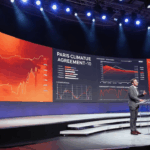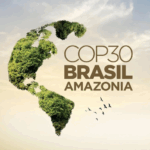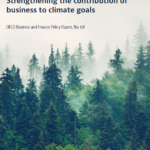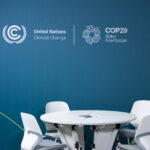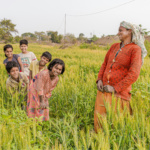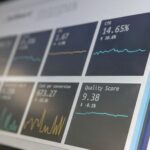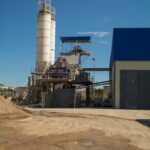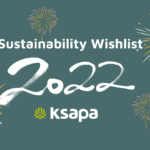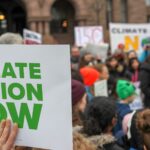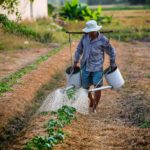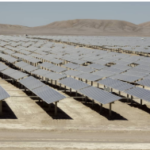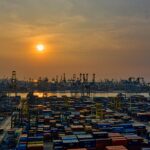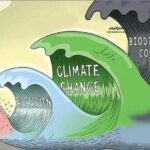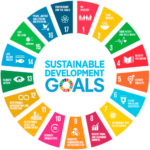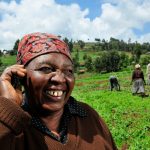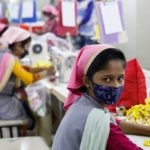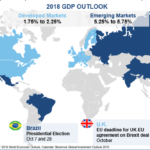Energy companies are massively investing in agricultural commodity supply chains to procure growing volumes of feedstock, such as sugarcane, soybeans, or palm oil. Other companies also active in the global trade in industrial commodities such as pulp, timber, rubber or cattle products can also drive deforestation and forest degradation risks. Deforestation risks can be mitigated investing massively in social performance programs on the ground.
No Deforestation: A Critical Commitment for Companies and Governments Willing to be Serious About Climate
Addressing deforestation is a cost-effective means of abating climate change, protecting watersheds and conserving biodiversity
- Science is very clear. According to the 2018 IPCC 1.5C target report: Protecting and restoring forests would reduce 18% of emissions by 2030 and help to avoid global temperature rise beyond 1.5C
- Business case for companies is also very clear. According to this recent CDP report, on average nearly a quarter of company revenues depend upon the commodities they reported on. The total annual turnover at risk for publicly listed companies is estimated to be up to US$906 billion.
Paris Agreement provides direction to encourage commitments. As a result, approximately 500 multinational companies have made No Deforestation commitments to date. But the truth is worrying, with limited hope to believe these efforts have meaningful impact on the ground to date.
- From a government perspective, deforestation in Brazil’s portion of the Amazon rainforest soared more than 88% in June 2019, compared with the same month a year ago. This is really depressing update.
- From a business perspective, with varying degrees of specificity, most of these 500 committed companies don’t disclose quantitative progress toward eliminating tropical forest loss from their commodity supply chains. Many hundreds more companies are not committed, and are still exposed to deforestation risks
What About Banning These Commodities From Supply Chains?
There are strong movements calling for banning several of these commodities, and palm oil is doubtless the most controversial topic. There are actually multiple alternative feedstocks to use as alternatives. But banning remains overall a simplistic response to complex issues:
- No silver bullet alternative. According to this 2018’s IUCN report, saying ‘no’ to palm oil would likely displace, not halt biodiversity loss. GreenPeace has been strong campaigner against palm oil, does recognise that when grown in vast quantities all alternative oils have serious environmental problems
- Jobs, jobs, jobs. From the perspective of sourcing countries, these commodities are wealth generators and create jobs stabilizing youth and migrants in rural areas
There are of course alternative projects exploring “local” solutions. The way recent trade agreements are criticized by scientists and NGOs shows how global trade discussions can be either part of the problem or the solution, and will be increasingly under pressure to deliver on climate action.
Investing in Social Performance of Agricultural Commodity Supply Chains
Buyers are primarily facing a triple challenge of traceability, transparency and fraud.
- Traceability. Coordinating work of farmers, biomass traders, transporters, and end users along these chains is complex. Standards (e.g. 2010 EN 14961-1), or certification schemes (e.g.: RSB for bio-based feedstock, biomass-derived material and other advanced fuel using palm oil) have helped to make progress. But cascading beyond mills and processing points, when multiple local smallholder farmers are bringing their production becomes very challenging
- Transparency. From the smallholder farmer perspective, transparency beyond immediate relationships is generally close to zero. A smallholder farmer is unlikely to know what happens to his harvest after it leaves his farm through an intermediary or cooperative
- Fraud. The development of a revenue may encourage fraud. Used cooking oil has been explored as a smart circular economy example using used oil from restaurants and food factories to use as biomass feedstock for energy and industrial usage. There have been examples of fraud adding new oil componant. Many commodity chains are unable to work with close pipeline ensuring end to end procurement of feedstock from farm to factory, given the traceability and transparency challenges at stake…
Companies can solve these problems investing in social performance and technology programs
- Technologies can help to manage volumes and generate greater traceability as well as local risk profiles. With GPS location of collection points, buyers can identify high risk areas to conduct further local assessments for instance. Blockchain may be promising but requires massive adoption and equipment
- Deforestation issues on the ground operating in markets like Indonesia or Brazil is primarily a poverty issue. Smallholder farmers don’t have property titles, which leads to encroachment activities. They don’t have access to technical training, leading to poor productivity and insufficient revenues. Plantation workers and management have limited practical understanding of global standards and audits. They need to be trained and use concrete guidelines to enhance working and living conditions of workers
The above is fully interconnected with deforestation issues. Fighting corruption and improving land property administrations can help to stabilize poor families and workers, and decrease deforestation risks related to encroachment activities. Revenues of smallholder farmers are strongly correlated with yield. Improving productivity decreases interest to deforest and expand productions. Improving risk assessment and traceability with technologies is also a way to disseminate standards and expectations more widely across sourcing markets.
Conclusion. We fight Deforestation Investing in People and Their Human Rights
Many activists interested in preserving biodiversity are interested in regulation and programs banning access to valuable rainforest areas. This is of course conceptually pertinent. We are in state of emergency and we collectively need to accelerate significantly our global capacity to maintain valuble forests as part of climate action activities.
On the ground, perspective is very different. Many local communities are primarily seeking for a land and a revenue. Unless they can make a living from local biodiversity (e.g. ecotourism programs), they don’t value their local biodiversity for its potential to mitigate climate risks and 1.5C trajectory. They want solutions to the corruption they are often facing everyday. They want training and quality education to generate wages and decent living conditions.
Solving this equation and using No Deforestation Commitments to connect the dots between local social issues and global environmental challenges is critical. We can fight deforestation investing massively in social performance and human rights.
Président et Cofondateur. Auteur de différents ouvrages sur les questions de RSE et développement durable. Expert international reconnu, Farid Baddache travaille à l’intégration des questions de droits de l’Homme et de climat comme leviers de résilience et de compétitivité des entreprises. Restez connectés avec Farid Baddache sur Twitter @Fbaddache.







